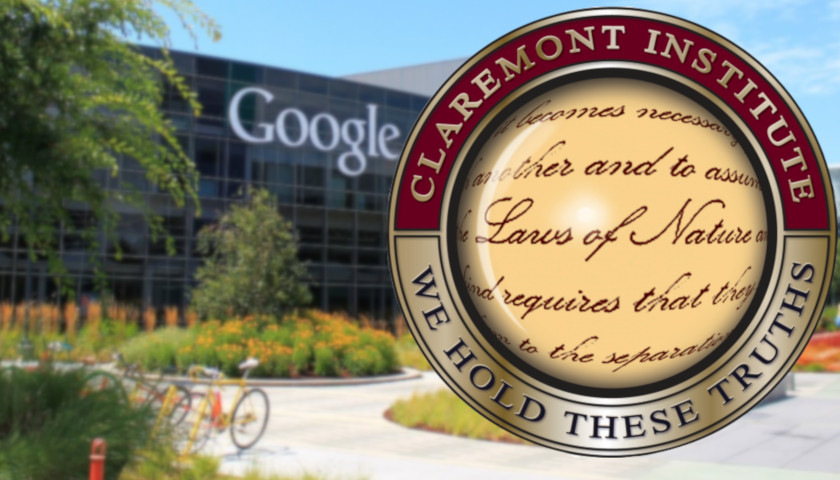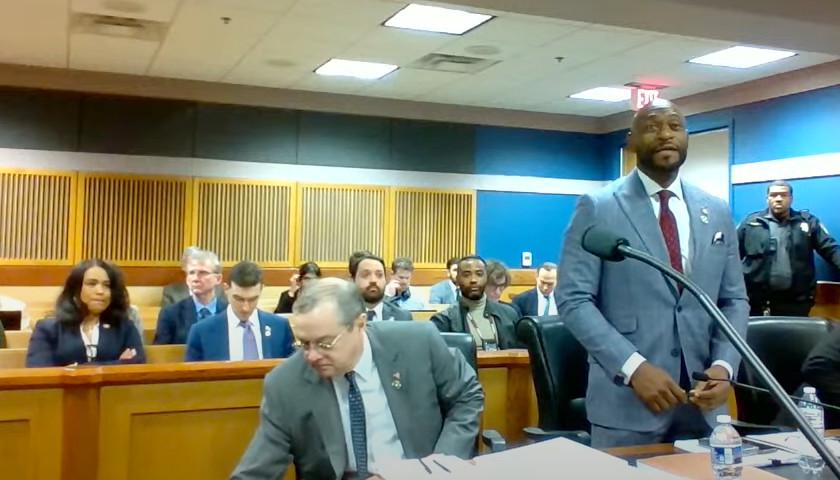by Glenn Elmers
Google tried to censor the Claremont Institute last week. The tech giant backed off under pressure, but the tactical maneuver was hardly a failure. To see why, we only have to think strategically.
The Claremont Institute is a conservative think tank devoted to preserving the original meaning and vitality of the Constitution and Declaration of Independence. Claremont has launched a new campaign against the dangers of multiculturalism, as Institute President Ryan Williams announced in an essay last month in its digital publication, The American Mind. The essay explains how multiculturalism and identity politics are anathemas to the American principles of equal natural rights.
Google decreed that essay, and indeed Claremont’s whole American Mind site, to be “a racially oriented publication”—an absurdity belied by Claremont’s long-standing fight against racial classifications, and Google’s indifference to rampant leftist obsessions with racial and ethnic differences.
When the Institute responded aggressively, publicly challenging Google, several conservative outlets expressed outrage.
Google-backed off, claiming it had made a “mistake.” Given the facts and applying the most basic logic, this is obviously false.
The most relevant fact is that Institute staff had to spend two hours on the phone asking Google how its ban (on paid advertisements for the Institute’s upcoming banquet) could be appealed, and for clarification about the grounds of the ban. Google responded that there was no appeal. Further, the ban would be withdrawn only upon complete capitulation to Google’s political correctness: the Institute would have to censor itself and repudiate four decades of patriotic scholarship and advocacy.
To understand what’s happening here, one has to think strategically. We are in a cold war with the Left. That war is heating up. Many soft-headed conservatives and libertarians either fail to see this or they’re clinging to the tiniest shreds of information they hope will allow them to ignore what’s happening. Even those of us who appreciate what is going on, do not always see how the other side really is thinking and acting in terms of war.
A military mindset is at work behind Google’s action—which represents the censorship and propaganda agenda of the whole social media conglomerate. To see this, it helps to reflect on a few lessons from one of the 20th century’s great but under-appreciated teachers of war and strategy, Harold W. Rood. Fittingly, Rood himself (who passed away in 2011) was affiliated with the Claremont Institute and taught for many years at Claremont McKenna College.
He had two sayings he was fond of repeating to his students: “Politics is war by other means,” and, “There are no coincidences.”
Take the second one first: The targeting of Claremont was no mistake and no accident. Scholars and activists associated with the Claremont Institute were among the earliest supporters of Donald Trump. The Institute’s Claremont Review of Books published Michael Anton’s famous “The Flight 93 Election”—the only essay that arguably had a significant effect on the 2016 election. And the Institute, more so than any other conservative think tank, has devoted its entire existence to explaining and defending what it means to be an American—an identity grounded in our founding principles of color-blind equal rights.
If Google could have bullied the Claremont Institute into submission, it would have been a massive victory for the regressive Left, and laid the foundation for a vastly more intense and aggressive censorship campaign.
But that wasn’t really what Google expected to happen, which brings up Rood’s second aphorism. The Left’s unrelenting propaganda, intimidation, censorship, de-funding and de-platforming are all tactics as part of a strategy in a “war by other means.” Google’s attempt to ban Claremont’s ads was a classic reconnaissance operation: initiate a small provocative skirmish with the enemy to probe his defenses and see how he responds; then pull back, analyze, and plan for the next (bigger) assault.
Google’s claim that it had made a “mistake” is a transparent falsehood. They were testing the perimeter. Thank goodness, Claremont stood its ground. That was necessary and important. Google has learned that at least one of its targets isn’t soft. But this simply means that the next assault will incorporate what the company learned this week; so it will strike harder.
Will you be ready?
– – –
Glenn Ellmers is a writer living in Washington, D.C. He studied political philosophy at Claremont Graduate University.
Photo “Claremont Institute” by Claremont Institute.




